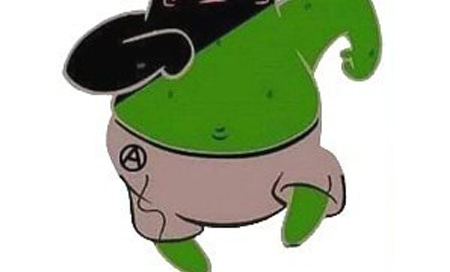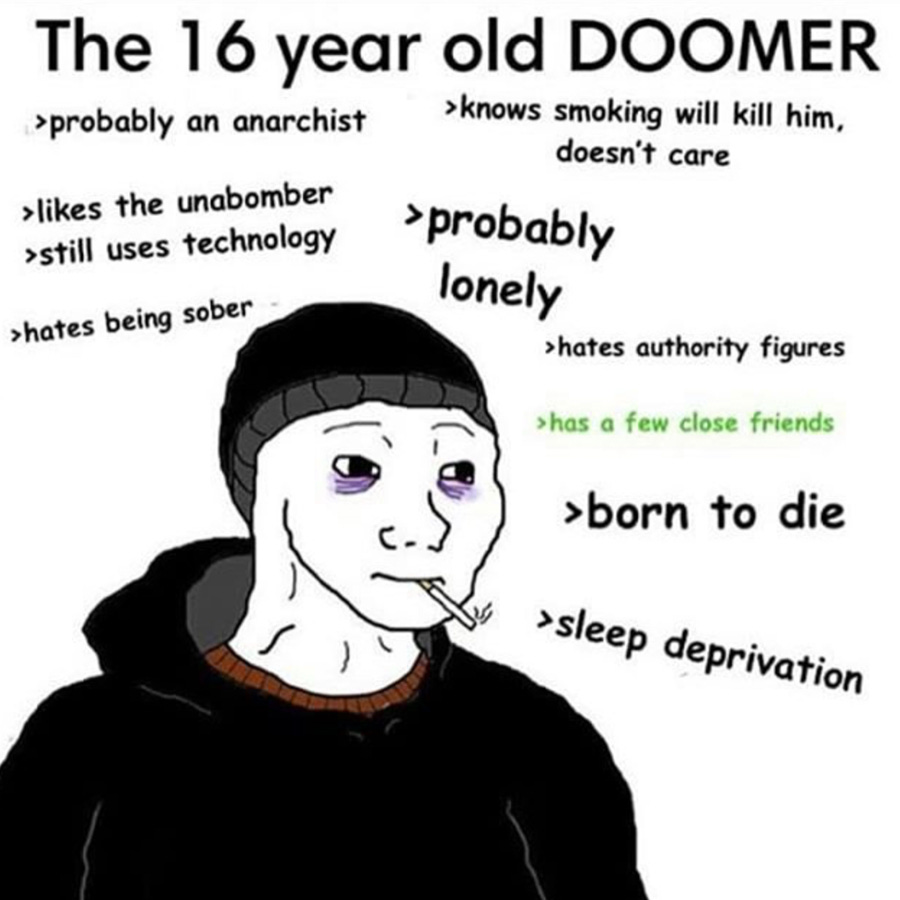My guest this week is a 16 year old extreme climate pessimist. They also happen to be one of my all time favorite posters whose meme account has inspired me for years. Primitivism grew in popularity on both the Left and Right and has since rippled outward into Gen Z memetic culture at large. Today it takes shape as a broad skepticism towards mass society and modernity, backed up by fantasies of apocalyptic climate catastrophe.
Southern.Anti.Civ
age 16
Tennessee
Instagram, Discord, Twitter, Reddit
***
Philosophically i’m vaguely aligned with anarcho-primitivism, but unlike pretty much every other anprim i think there’s a good amount of value in using electoralism to alleviate social and economic suffering.
Who are your biggest influences?
Henry David Thoreau, Guy Debord and the Situationists, Fredy Perlman, Kevin Tucker/Green and Black Journal, Slavoj Žižek (his linguistic-political theory especially), Marx, and Jacques Camatte.
I tend to think alienated labor boosts technology which in turn boosts alienated activities like overuse of tech and social media and such. i try to distance myself from Kaczynski, but his idea of surrogate activities fits in nicely here and offers great insight: we do things like go on social media because we lack genuinely productive ways to use our time in general. we mostly feel we’re not doing anything with our labor because of the alienation from the product, and because of civilization it becomes much harder to do physical tasks like go out and build a cabin, so instead we seek out things like Twitter or Instagram because it acts as such a good coping and venting mechanism while only furthering alienation.
When did you first learn about or start visiting online political communities?
When i was around 9 or 10, by way of discovering reddit and 4chan from my brother who’s 5 years older than i am.
Keep reading with a 7-day free trial
Subscribe to Doomscroll to keep reading this post and get 7 days of free access to the full post archives.





